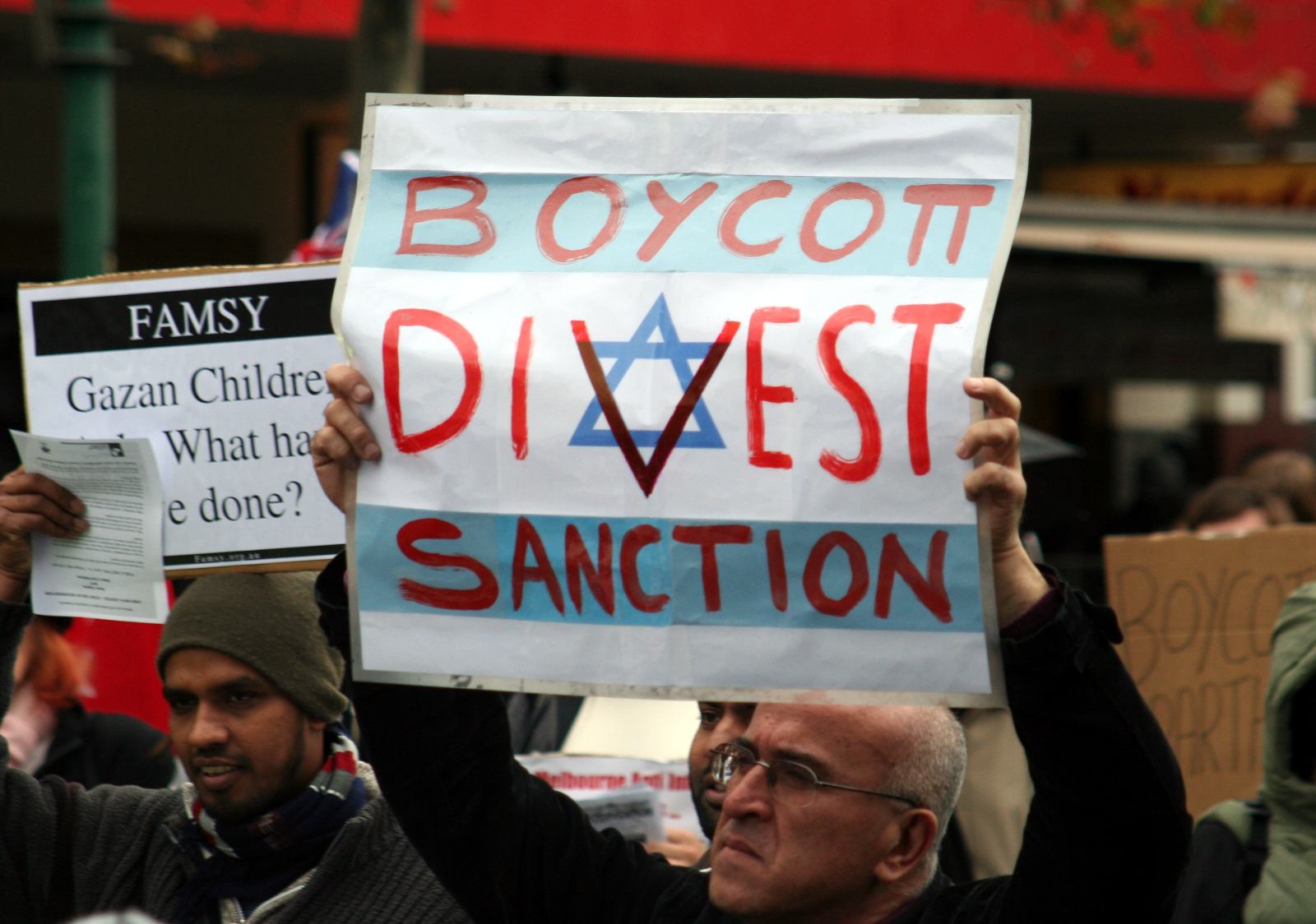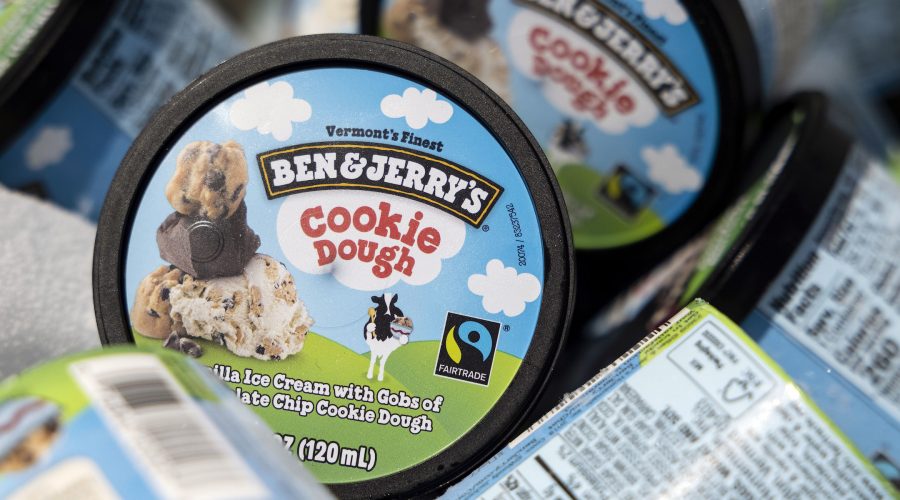If you’re following Israel news anywhere in the world right now, you’ve heard about the outrage over Ben & Jerry’s recent announcement to stop selling their ice cream in the “occupied territories” of Judea and Samaria.
Perhaps you’re wondering what the big deal is and why it should matter you. Doesn’t ice cream sales seem like a odd battleground for Middle East politics?
Anti-Semitism in Disguise
Israel’s new Foreign Affairs Minister, Yair Lapid, explains:
“Anti-Semitism exists everywhere . . . the anti-Semites weren’t just in the Budapest Ghetto, the anti-Semites were slave traders who threw chained slaves overboard into the ocean. The anti-Semites were the members of the Hutu tribe in Rwanda who massacred members of the Tutsi tribe. The anti-Semites are the Muslim extremists who killed 20 million fellow Muslims in the last decade . . .”
Anti-Semitism is not a modern convention unique to the last century, but rather it is one of the many bigotries expressed in the annals of human hatred.
The Oxford American Dictionary defines anti-Semitism as “hostility to or prejudice against Jewish people”. The Merriam-Webster Dictionary defines it as “feeling or showing hostility toward or discrimination against Jews as a cultural, racial, or ethnic group”.
Examples of Anti-Semitic Demonization in Israel News
- The false declaration that Israel is an “apartheid state”. In truth, equal rights are afforded to all Israeli Arab citizens.
- The false declaration that Israel is practicing ethnic cleansing. This is one of the most outrageous mistruths presented in Israel news across the globe. In truth, there is no ethnic cleansing happening and the number of Arabs in Israel continues to steadily grow every month.
- Israel being accused without legal basis of utilizing disproportionate force in military maneuvers. In truth, the IDF is the world’s most moral army and they send repeated broadcasts warning civilians to vacate certain areas before attacks are levied.
- In the Olympics, certain athletes are refusing to compete with fellow athletes if they are from Israel. There is a clear antipathy towards Israel that is shared by nations all around the world. Do we hear regularly that the athletes of one country refuse to face the athletes of another?
Why is Israel Singled Out for Boycotting?
Truth be told, there are an enormous number of severe human rights violations and injustices being committed by various nations across the globe right now. However, very few of them face threats and boycott campaigns in order to coerce them to mend their ways.
The co-founder of the BDS movement, Omar Barghouti, has some outrageous things to say about Israel. You can watch this video for proof that he doesn’t see the BDS movement as tool to motivate the correction of ethical failings, but rather to eliminate Israel entirely.
Another pro-BDS author, Ahmed Moor, says “Ending the occupation doesn’t mean anything if it doesn’t mean upending the Jewish state itself . . . BDS does mean the end of the Jewish state.”
The Most Chilling Boycott of All Time
On July 19, 2021, the Ben & Jerry’s ice cream brand, a subsidiary of the Unilever Group, announced:
We believe it is inconsistent with our values for Ben & Jerry’s ice cream to be sold in the Occupied Palestinian Territory…We have informed our licensee that we will not renew the license agreement when it expires at the end of next year.”
The company’s unapologetic refusal to renew the agreement with its Israeli partner when it expires in 2022 has resulted in quite an outrage in Israel news worldwide.
Unilever acquired Ben & Jerry’s in 2000. Under the deal, the ice cream brand maintained a relatively high amount of autonomy in comparison to other subsidiaries. The boycott decision was made by the ice cream company’s board, which retains autonomy over its brand and business strategy and has the freedom to pursue its own social corporate mission and brand integrity.
According to CEO Alan Jope, the umbrella company, Unilever, does not support the boycott, and released a public letter assuring Unilever’s full commitment to their employees and customers in Israel and to Jewish communities around the world.
The Company Behind the Beloved Ice Cream Brand
Ben & Jerry’s is the world’s fourth top-selling ice cream brand, and the company operates in approximately 39 countries, managing over 200 dairy farms. They have over 8.6 million followers on Facebook and over half a million followers on Twitter.
The Ben & Jerry’s Foundation, a social justice organization founded in 1985, has given large grants in the last few years to organizations such as the Oakland Institute, a think tank founded by Palestinian land rights activist Anuradha Mittal.
The Ben and Jerry’s Foundation has also given grants to other organizations such as the BADIL Resource Center for Palestinian Residency and Refugee Rights.
Interestingly enough, the European Union withdrew funding from BADIL last year after they refused to sign an “anti-terror” clause in their funding contract. To receive the funding, they had to agree that none of the funds would be transferred to members of terrorist organizations. They refused to agree.
Did Ben & Jerry’s Break the Law?
Daniel Pomerantz, CEO of HonestReporting and an expert in international law, said that boycotts have traditionally played an important role in free speech and social justice within the United States. However, he cautioned against allowing private companies to dictate foreign policy through boycotts.
According to HonestReporting, “The United States Constitution, as well as numerous acts of Congress and various state laws, prohibit American individuals and corporations from participating in boycotts against foreign countries. In short, a private boycott against a foreign government is not “free speech” like the domestic boycotts of the Civil Rights Movement, but rather a tool of statecraft that, like war, is reserved to the federal government alone.”
Lawmakers in the United States are in the process of examining the legal aspects of the ice cream company’s move to boycott Jewish communities in the West Bank. 34 different states have enacted laws requiring the cessation of business transactions with companies that boycott Israel, and 21 of those states specifically include West Bank “settlements” in the law.
The legal outcome is still up in the air, but it’s probable that Ben & Jerry’s will end up paying quite a price for their unapologetic condemnation of Israel.
Where Do We Go From Here?
Ben & Jerry’s recent decision is a shameful course of action that is not only legally complicated, but egregiously anti-Semitic. Together, we need to take a stand with Israel and against the BDS campaign efforts being initiated by anti-Semitic companies and organizations around the globe.
For starters, we can buy a different brand of ice cream. But if you’re looking to take your support for Israel a step further, check out companies that are specifically aiming to boost business for small family-owned companies in Judea and Samaria, such as Blessed Buy Israel.


